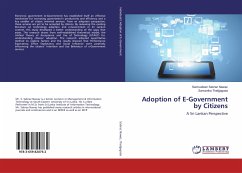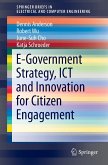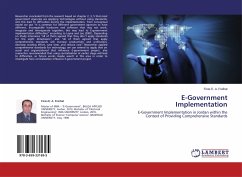Electronic government (e-Government) has established itself an effective mechanism for increasing government's productivity and efficiency and a key enabler of citizen oriented services. From an adoption perspective, these services are yet to be accepted by citizens. By reviewing the existing literature on technology adoption and e-Government in Sri Lankan context, this study developed a better understanding of the gaps that exists. The research draws from well-established theoretical model; the Unified Theory of Acceptance and Use of Technology (UTAUT) for understanding citizens' adoption. The research adopted quantitative method to explore factors and the results showed that Performance Expectancy, Effort Expectancy and Social Influence were positively influencing the citizens' Intention and Use Behaviour of e-Government services.
Bitte wählen Sie Ihr Anliegen aus.
Rechnungen
Retourenschein anfordern
Bestellstatus
Storno








